As per the image, it looks like there will be an alternative standard in IEC with respect to every UL standard?

- 47
- 5
-
What do you mean by "equivalent"?. If you sell a product in the US and it is required to comply with a UL-standard then that is the standard you have to comply with and not an "equivalent" IEC standard, you can sometimes argue that since you comply with a certain IEC standard you also comply with a similar or less stringent UL-standard, but generally speaking they are not the same and not "equivalent" from a lawyers point of view... – Vinzent Feb 04 '21 at 16:41
-
@Vinzent I would assume "equivalent" means: would it be possible to convince UL/CSA/ANCE/other certifiers to accept a similar cert/test done on a product under a given IEC standard. For example, UL 746A glow wire ignition tests reference the procedure for IEC 60695-2-13 GWIT tests. Given that, if a product had the IEC test it would unreasonable for a UL certifier to force you to retest it, so long as the original test was done at a reputable lab and witnessed by an IEC certifier or tech. – inund8 Apr 28 '23 at 21:19
1 Answers
There will probably be an IEC standard corresponding to most UL electrical standards. UL standards are intended to cover every aspect of electrical product design with respect to safety. UL standards like the ones that specify the shapes and dimensions of plugs and receptacles have corresponding IEC standards for a different series of items. UL has safety standards for some non-electrical products. Those may not have a corresponding IEC standard.
There is probably not a UL standard for every IEC standard. There are performance and dimension standards covered by IEC that have corresponding NEMA standards. If IEC has standards for installation of electrical distribution wiring and equipment those standards would have corresponding NEC standards.
IEC standards may be equivalent to UL standards in intent and essentially equivalent in detail, but that does not mean that that meeting those standards makes a product acceptable to authorities having jurisdiction in the US. Local electrical codes require products that are installed to be listed and labelled by a nationally recognized testing laboratory (NRTL) such as UL, ETL or CSA. NRTL listing is essentially a certification that the product meets UL standards. NRTLs do not list based on IEC.
Local electrical codes do not regulate what can be sold or place requirements on portable plug-in electric products. However there is considerable publicity and some pressure put on retail stores to prevent the sale and use of products that do not have an NTRL label.
-
-
Is it enough for a product to be accepted by authorities if it has met all the UL standards or it may require to pass the IEC standards associated with it as well in US? – nikhil valiveti Feb 07 '21 at 05:36
-
1For US authorities, an NRTL listing and label is all that is required unless FCC approval is required for radio transmission. The NRTL's determine what standards apply. They would not apply IEC standards except to the extent that IEC standards may have been adopted by US standard-writing organizations such as UL. You can get a general idea how things work by asking here, but designers wishing to sell in the US market need to get advice directly from a US NRTL. NRTL listing is not a one-time thing, it involves a contract covering the place of manufacture over the period of manufacture. – Feb 07 '21 at 14:40